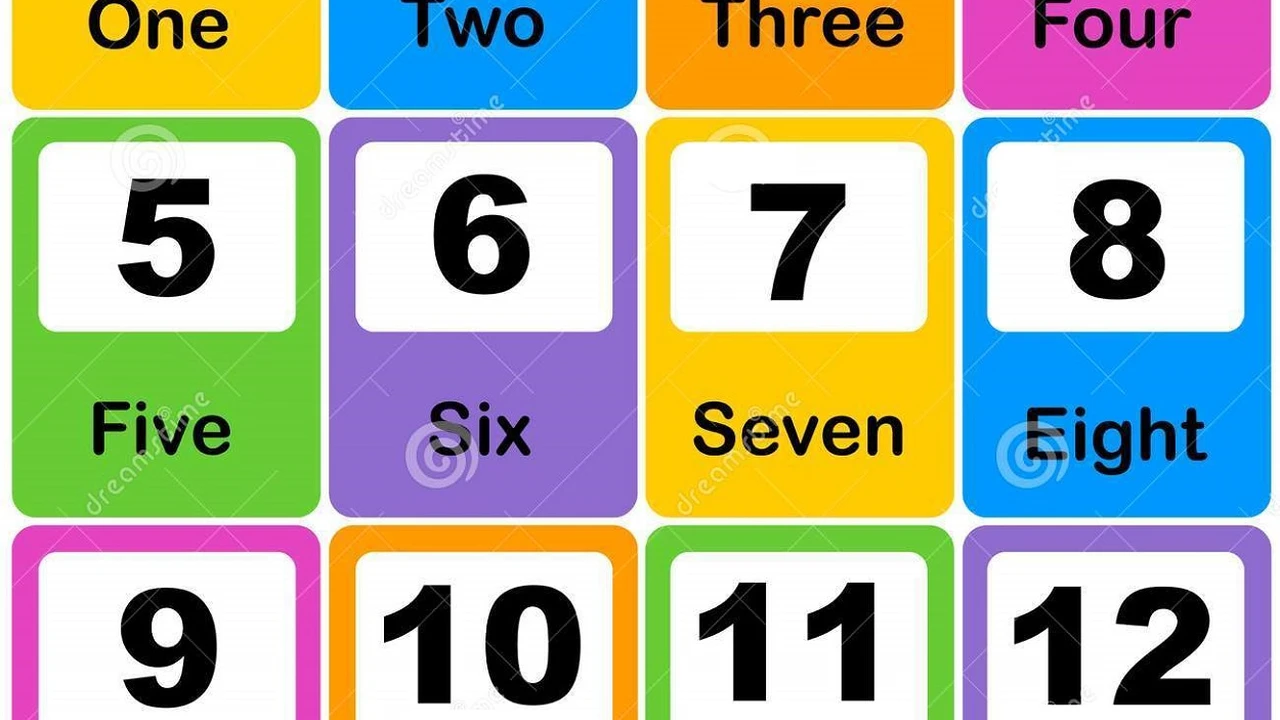Setting Achievable Career Goals for Q4
Learn how to set realistic and impactful career goals for the final quarter of the year.

Setting Achievable Career Goals for Q4
As the year winds down, Q4 often feels like a sprint to the finish line. It's a crucial period for many professionals to consolidate their achievements, reflect on their progress, and set the stage for future success. But how do you ensure your career goals for this intense quarter are not just ambitious, but also genuinely achievable? It’s not about dreaming big; it’s about planning smart. This article will dive deep into practical strategies, tools, and real-world examples to help you craft Q4 career goals that truly accelerate your professional journey.
Understanding the Q4 Career Landscape
Q4 is unique. It’s a time of year often characterized by budget finalizations, year-end reviews, holiday breaks, and strategic planning for the upcoming year. This means there are both opportunities and challenges. On one hand, companies are often looking to close out projects, hit targets, and allocate resources, which can open doors for new initiatives or promotions. On the other hand, the shorter working weeks due to holidays, increased personal commitments, and the general rush can make it harder to focus and execute. Understanding this landscape is the first step to setting realistic goals. Are you aiming for a promotion? A new certification? A significant project completion? Each requires a different approach and consideration of the Q4 rhythm.
The SMART Framework for Goal Setting
You've probably heard of SMART goals before, but let's revisit them with a Q4 lens. This framework is your best friend for ensuring your goals are well-defined and attainable.
- Specific: What exactly do you want to achieve? Instead of 'improve my skills,' try 'complete the Advanced Data Analytics certification.'
- Measurable: How will you know when you've achieved it? 'Increase sales by 15%' is measurable; 'do better in sales' is not.
- Achievable: Is it realistic given your resources and the Q4 timeline? Don't aim to launch a completely new product line if you're a one-person team with two weeks left in the year.
- Relevant: Does this goal align with your broader career aspirations and your company's objectives?
- Time-bound: When will you achieve this by? For Q4, this is naturally by the end of December, but breaking it down into weekly or bi-weekly milestones is even better.
Let's take an example: Instead of 'Get a promotion,' a SMART Q4 goal might be: 'By December 15th, secure a promotion to Senior Marketing Manager by successfully leading the Q4 digital campaign, resulting in a 20% increase in lead generation, and presenting a clear business case for my expanded responsibilities to my manager by November 30th.'
Breaking Down Big Goals into Actionable Steps
Even the most SMART goal can feel overwhelming if you don't break it down. Think of your Q4 goal as the summit of a mountain. You need a clear path, not just a destination. For each major goal, identify the smaller, incremental steps required to reach it. These are your mini-milestones.
For instance, if your goal is to 'Complete the Advanced Data Analytics certification by December 15th,' your steps might include:
- Research and select the best certification program (by Oct 15th).
- Enroll and set up study schedule (by Oct 20th).
- Complete Module 1 and 2 (by Nov 5th).
- Complete Module 3 and 4 (by Nov 20th).
- Review and practice exams (by Dec 5th).
- Take the certification exam (by Dec 15th).
This granular approach makes the goal less daunting and provides clear checkpoints for progress.
Leveraging Technology for Goal Tracking and Productivity
In today's fast-paced world, technology can be a powerful ally in achieving your Q4 career goals. There are numerous tools designed to help you plan, track, and manage your progress. Choosing the right one depends on your personal preference and the complexity of your goals.
Project Management and Task Tracking Tools for Career Goals
These tools are excellent for breaking down goals into tasks, assigning deadlines, and monitoring progress. They provide a visual overview of your workload and help you stay accountable.
- Trello: A highly visual, card-based system perfect for personal goal tracking. You can create boards for different goals (e.g., 'Q4 Career Goals'), lists for stages (e.g., 'To Do,' 'In Progress,' 'Done'), and cards for individual tasks. You can add checklists, due dates, and attachments.
- Asana: More robust than Trello, Asana is great for managing multiple projects or more complex personal goals. It offers various views (list, board, calendar) and allows for subtasks, dependencies, and custom fields. It's excellent if your career goals involve collaborative elements or require detailed planning.
- Monday.com: A highly customizable work operating system. While often used by teams, its flexibility makes it suitable for individual goal tracking. You can create dashboards to visualize your progress, set automated reminders, and integrate with other tools.
- ClickUp: A comprehensive productivity platform that aims to replace multiple apps. It offers a vast array of features, including tasks, subtasks, checklists, Gantt charts, and whiteboards. It might be overkill for simple goals but is fantastic for complex career projects.
Comparison and Pricing:
| Tool | Key Features for Goal Tracking | Typical Use Case | Pricing (Approx. per month) |
|---|---|---|---|
| Trello | Visual boards, cards, checklists, due dates | Simple personal goals, small projects | Free (Basic), $5 (Standard), $10 (Premium) |
| Asana | Tasks, subtasks, multiple views, dependencies | Complex personal goals, collaborative projects | Free (Basic), $11 (Premium), $25 (Business) |
| Monday.com | Customizable dashboards, automation, integrations | Visual learners, detailed tracking, reporting | $8 (Basic), $10 (Standard), $16 (Pro) |
| ClickUp | All-in-one, tasks, docs, whiteboards, time tracking | Comprehensive project management, power users | Free (Unlimited), $5 (Unlimited), $12 (Business) |
Note: Pricing is approximate and can vary based on billing cycle (monthly vs. annual) and specific plan features. Many offer free tiers for basic use.
Time Management and Focus Apps for Q4 Productivity
Achieving Q4 goals often comes down to effective time management and maintaining focus amidst distractions. These apps can be invaluable.
- Forest: A unique app that helps you stay focused by growing a virtual tree. If you leave the app before your timer is up, your tree dies. It's a fun way to gamify focus and reduce phone distractions.
- Todoist: While primarily a to-do list app, its powerful recurring tasks, natural language input, and project organization features make it excellent for managing daily tasks that contribute to your larger Q4 goals.
- RescueTime: This app runs in the background and tracks how you spend your time on your computer and mobile devices. It provides detailed reports, helping you identify time sinks and optimize your work habits. It's fantastic for understanding where your time actually goes.
- Freedom: If distractions are a major issue, Freedom allows you to block distracting websites and apps across all your devices for set periods. It's a powerful tool for creating a focused work environment.
Comparison and Pricing:
| Tool | Key Features for Productivity | Typical Use Case | Pricing (Approx. per month) |
|---|---|---|---|
| Forest | Gamified focus, distraction blocking | Individuals struggling with phone distractions | Free (Basic), $1.99 (Pro, one-time purchase) |
| Todoist | Smart to-do lists, recurring tasks, project organization | Daily task management, simple project tracking | Free (Basic), $4 (Pro), $6 (Business) |
| RescueTime | Automatic time tracking, productivity reports | Understanding time usage, habit optimization | Free (Lite), $6.50 (Premium) |
| Freedom | Website/app blocking across devices | Serious distraction blocking, deep work sessions | $6.99 (Monthly), $2.42 (Annual) |
Note: Pricing is approximate and can vary. Many offer free trials or basic free versions.
The Importance of Regular Review and Adjustment
Setting goals is just the beginning. Q4 is dynamic, and things rarely go exactly as planned. Regular review and adjustment are critical for success. Schedule weekly or bi-weekly check-ins with yourself. Ask:
- Am I on track to meet my goals?
- What challenges have I encountered?
- Do I need to adjust my approach or even the goal itself?
- What resources do I need that I don't currently have?
Don't be afraid to pivot. If a goal becomes unrealistic due to unforeseen circumstances, it's better to adjust it than to cling to an impossible target and feel defeated. The aim is progress, not perfection.
Building Accountability and Support Systems
You don't have to go it alone. Building accountability and support systems can significantly increase your chances of achieving your Q4 career goals.
- Find an Accountability Partner: This could be a colleague, a friend, or a mentor. Regularly check in with each other on your goals. Knowing someone else is expecting an update can be a powerful motivator.
- Communicate with Your Manager: If your goals align with your company's objectives, discuss them with your manager. They can provide guidance, resources, and even advocate for you.
- Join a Professional Group: Online or offline, professional groups can offer a community of like-minded individuals who are also working towards career growth. Share your goals and learn from others' experiences.
Celebrating Small Wins and Maintaining Motivation
Q4 can be intense, and it's easy to get bogged down in the daily grind. Remember to celebrate your small wins along the way. Completing a challenging task, hitting a mini-milestone, or even just sticking to your study schedule for a week – these are all worth acknowledging. Celebrating progress keeps your motivation high and reinforces positive habits.
Also, don't forget about self-care. The end of the year can be stressful. Ensure you're getting enough rest, eating well, and taking breaks. A burnt-out professional is not an effective one. Your well-being is a critical component of your ability to achieve your career goals.
Common Pitfalls to Avoid in Q4 Goal Setting
While setting achievable goals is key, it's equally important to be aware of common traps that can derail your efforts during Q4.
- Overcommitment: The desire to finish the year strong can lead to taking on too much. Be realistic about your capacity, especially with holiday commitments.
- Lack of Flexibility: Q4 often brings unexpected changes. Being rigid with your plans can lead to frustration. Build in some buffer time and be prepared to adapt.
- Ignoring Personal Well-being: Pushing too hard without breaks leads to burnout. Your physical and mental health are foundational to your productivity.
- Setting Vague Goals: As discussed with SMART goals, lack of specificity makes it impossible to track progress or know if you've succeeded.
- Not Reviewing Progress: Setting goals and forgetting them is a common mistake. Regular check-ins are non-negotiable.
By being mindful of these pitfalls, you can navigate Q4 more effectively and keep your career goals on track.
Final Thoughts on Q4 Career Acceleration
Setting achievable career goals for Q4 isn't about magic; it's about methodical planning, consistent effort, and smart utilization of resources. By applying the SMART framework, breaking down your goals, leveraging technology for tracking, and building a strong support system, you can transform your Q4 from a chaotic rush into a period of significant professional growth. Remember to be kind to yourself, celebrate your progress, and stay adaptable. Here's to a productive and successful final quarter of the year!
:max_bytes(150000):strip_icc()/277019-baked-pork-chops-with-cream-of-mushroom-soup-DDMFS-beauty-4x3-BG-7505-5762b731cf30447d9cbbbbbf387beafa.jpg)






